#William Morrow Publishers
Text
We Carry Their Bones is some of the most achingly good true crime coverage I've read in long time, and shows the kind of approach--centering the victims and their families without shying away from the horror of the experience you seek to shed light on--that should be the norm for true crime journalism in all media forms.
#books#book review#true crime#netgalley#we carry their bones#erin kimmerle#dozier school for boys#william morrow publishing#florida#archaeology
3 notes
·
View notes
Text
Forthcoming: "Chinese Poetry as Soul Summoning" by Nicholas Morrow Williams
Forthcoming: “Chinese Poetry as Soul Summoning” by Nicholas Morrow Williams
With “Chinese Poetry as Soul Summoning,” Nicholas Morrow Williams has written a “masterful study of the Elegies of Chu (Chuci)” that looks at the soul of the soul (hun) and the soul-summoning ritual in Chinese literature from ancient times up to the twentieth century. Robert Egan of Stanford University writes:
“This is a masterful study of the Elegies of Chu (Chuci), particularly of the…

View On WordPress
0 notes
Text
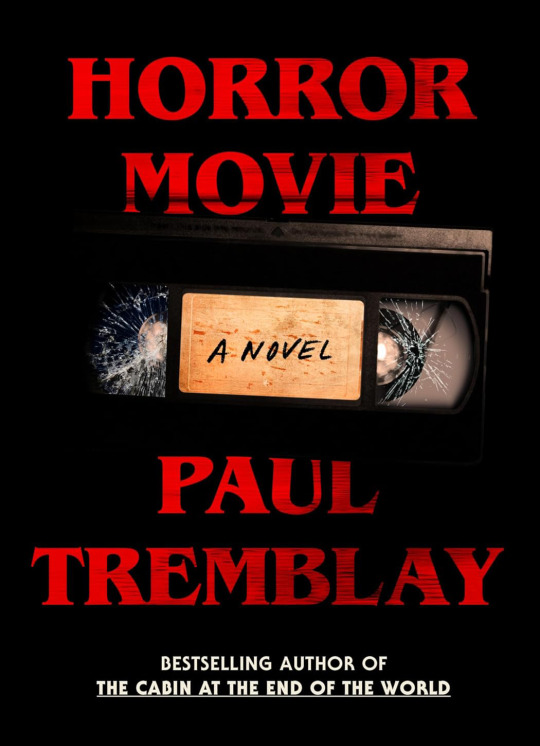
Horror Movie: A Novel by Paul Tremblay (whose The Cabin at the End of the World was adapted into M. Night Shyamalan's Knock at the Cabin), will be published on June 25, 2024 via William Morrow.
The 288-page novel about a cursed horror film will be available in hardcover, e-book, and audio book. The synopsis is below.
In June 1993, a group of young guerilla filmmakers spent four weeks making Horror Movie, a notorious, disturbing, art-house horror flick.
The weird part? Only three of the film’s scenes were ever released to the public, but Horror Movie has nevertheless grown a rabid fanbase. Three decades later, Hollywood is pushing for a big budget reboot.
The man who played “The Thin Kid” is the only surviving cast member. He remembers all too well the secrets buried within the original screenplay, the bizarre events of the filming, and the dangerous crossed lines on set that resulted in tragedy. As memories flood back in, the boundaries between reality and film, past and present start to blur. But he’s going to help remake the film, even if it means navigating a world of cynical producers, egomaniacal directors, and surreal fan conventions—demons of the past be damned.
But at what cost?
Horror Movie is an obsessive, psychologically chilling, and suspenseful twist on the “cursed film” that breathlessly builds to an unforgettable, mind-bending conclusion.
#paul tremblay#horror movie#horror novel#horror books#the cabin at the end of the world#book#gift#william morrow#knock at the cabin#m night shyamalan#m. night shyamalan
51 notes
·
View notes
Text
The Satanic Bible, by Anton LaVey
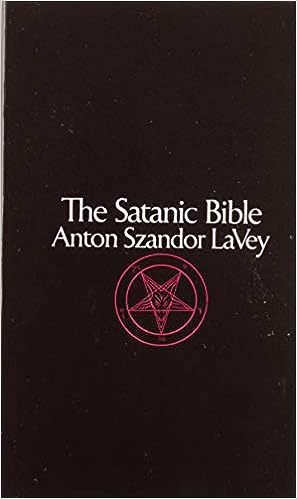
Title: The Satanic Bible
Author: Anton Szandor LaVey
Publisher: William Morrow Paperbacks
Publishing Date: December 1, 1969 (First Edition)
ISBN-10: 0380015390
ISBN-13: 978-0380015399
Alright, let's start with the elephant in the room. This little book is often the only thing people read on Satanism, and for good reason - it made quite a splash when it was published.
Considered the foundational text of the Church of Satan and their specific style of atheistic Satanism (often called LaVeyan Satanism), The Satanic Bible is part philosophy, part religious teaching, and part magical instruction. LaVey is well known for his stance that humanity does not need God, and that believing in God (or Satan, for that matter) as real entities serves only to hold back our potential. However, LaVey argues that humanity does need religion, and that religion requires dogma and ceremony. The dogma and ceremony LaVey offers to the reader is based on one's own happiness and self-satisfaction, as opposed to the Christian values of self-sacrifice for the greater good. His Nine Satanic Statements, Eleven Satanic Rules of the Earth, and Nine Satanic Sins are easy to read and understand, and seem to be the inspiration for other Satanist's lists of values, such as The Satanic Temple's Seven Fundamental Tenants.
LaVey embraces sexuality and indulgence, framing sexual energy as the best and most potent source of power for magical workings. Magic is described not as an appeal to a higher power but a seizing of one's own fate, aiming for success and happiness through the manipulation of the world around oneself. The practices he recommends are rooted in ceremonial magic, especially Enochian magic.
The Satanic Bible has had multiple editions and translations since its original publication and is widely available through most online book retailers, as well as sometimes being stocked in magical and metaphysical shops.
[DISCLAIMER: The Devil's Library is not affiliated with any of the previously mentioned groups or authors. It is an independent project by a single Satanist. Do not mistake my mentioning of an author or group as endorsement for their beliefs and practices.]
Beneath the cut you'll find my personal review and opinions on this book.
I've said before on this blog that I am not LaVeyan, and that's still true. While I greatly respect the concept of a non-theistic religion and I lift my glass to all those who work hard to form such religions, I prefer a theistic view of the world. On top of that, LaVey's philosophy does little for me. In truth I consider LaVey's work to not be particularly revolutionary in terms of philosophy. He was a self-admitted fan of Ayn Rand and his brand of Satanic individualism has oft been compared to Randian philosophy with a coat of occult paint slapped on top - I think that evaluation holds true. His magical system also strikes me as unoriginal, given he simply reworked the Enocheon keys. My overall evaluation of the man was that he was a lazy philosopher and a lazy magician, but a skilled showman, and that's how he pulled in as many followers and critics as he did. People were rejecting God and practicing ceremonial magic long before LaVey came along. He just cultivated a compelling aesthetic around it.
I think it's safe to say the book is a product of its time and creator. LaVey is both progressive and regressive, endorsing kink and queer sexuality while also objectifying women in his magical practice (LaVey is, as far as I can tell, the originator of the Satanic tradition of using a nude woman's body as an altar, and he makes a note that during ritual, men should wear robes, but women should dress scantily in order to titillate the men) and having some deep misunderstandings about asexuality. It's also not to be taken lightly that while as far as I'm aware, LaVey himself didn't profess to be a white supremacist, his fondness for Ayn Rand shows a fondness for fascism, he certainly rubbed elbows with white supremacists, and various individuals and groups that broke off from the original Church of Satan have been noted as having a range of Nazi-adjacent views and values, namely the Temple of Set. His list of "Satanic names" is also a very sloppily cobbled together list of names of any god, deity, or spirit who's ever been even slightly associated with negativity, utterly ripped from their cultural context and reduced to keywords that, I assume, LaVey expects the readers to either claim as names of their own or use in rituals. The list includes outright racist cultural appropriation, such as the inclusion of Kali's name, to ignorant misrepresentations of myth, such as calling Loki the "Teutonic devil." As always, I recommend referencing scholarly and culturally conscious resources when it comes to discussions of other religions and mythologies. Do not take a single writer with no credentials at face value.
That being said this is a book I generally recommend people read, with the added note that taking it entirely at face value and assuming it's the one true Satanic text is a mistake. The Satanic Bible is integral to our religious history at this point, but we need not cling to it as entirely or even mostly correct. It is also useful to be familiar with it when interacting with other Satanists, as it's possibly the most commonly read book in the entire religion, so like it or hate it, you probably should have some opinion on it.
#satanism#atheistic satanism#the satanic bible#anton lavey#laveyan satanism#satanic magic#the devil's library#the devils library#tdl#bookshelf#my posts
42 notes
·
View notes
Note
Hello! I have a question for you and your followers. First I love the newsletter - I even signed my mom up for it and I'm enjoying my second year read through! But I also want to get physical copies of the books. My mom kept our old copies and refuses to let me steal them back to my home, so I figure I'm ready to get my own set. I figure there must be some really pretty editions/publications of the series out there (and of the hobbit and silmarillion too). Do you know of any versions of the series - whether by fan creators or big publishing houses - that are really gorgeous editions of the books?
Hi!
Fist of all - thank you so much for your kind words! I'm so happy you're enjoying the newsletter (again!), and I hope that your mom does as well! 🥰🥰
As for the LOTR editions - I for example love the English edition I own, which I got from a very dear friend (the one I have is the left one in the tweet below). It has Tolkien's illustrations in it, the cover underneath the dust jacket is very minimalistic, and the sides have the One Ring inscription on them, it looks amazing. And it looks great inside, too, there's a tiny bit of color for example in chapter titles, which I really enjoy. And you actually get all of LOTR in one book like jirt intended.

There's also this one, also by Harper Collins, which I really like because it uses Tolkien's originally unused dust jacket designs which he made for the first edition of LOTR.

Then there are these pretty classic editions by Mariner, which have very minimalistic covers and I love that - I actually have The Hobbit from this series! They feel like a pretty obvious choice to show you, but I really do like them a lot.
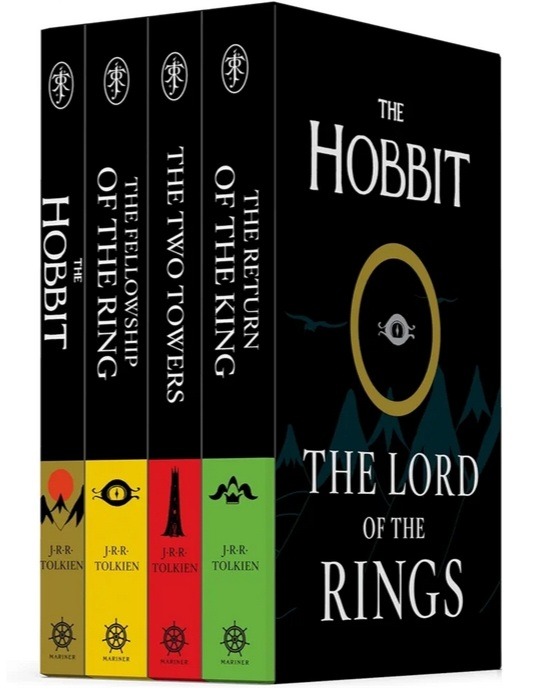
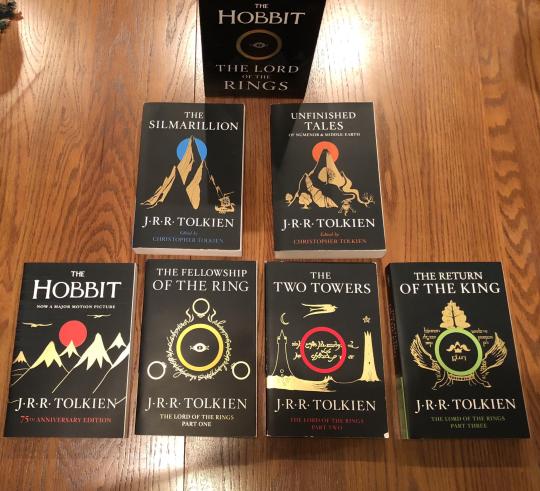
And then there's this pocket-sized box set by William Morrow which I ADORE. It's so minimalistic and simple and small. I love it so much.

And there are also these STUNNING versions but I'm not sure you can commission the author because he does bookbinding as a passion project. But just look at them, they're gorgeous:
I hope you see something you like here and I definitely encourage others to share their favourite editions!
26 notes
·
View notes
Text
Jan - Jun 2023 Reading List:
Adichie, Chimamanda Ngozi. Dear Ijeawele, or, A Feminist Manifesto in Fifteen Suggestions. New York: Alfred A. Knopf, 2017.
Adichie, Chimamanda Ngozi. We Should All Be Feminists. New York: Vintage Books, 2014.
Bartky, Sandra Lee. Femininity and Domination: Studies in the Phenomenology of Oppression. New York: Routledge, 1990.
Bittel, Carla. Mary Putnam Jacobi & The Politics of Medicine in Nineteenth-Century America. Chapel Hill: The University of North Carolina Press, 2009.
Bolen, Jean Shinoda. Goddesses in Everywoman: A New Psychology of Women. Perennial Library, n.d.
Brownmiller, Susan. Femininity. New York: Open Road Media, 2013.
Chesler, Phyllis. Women and Madness. Chicago: Lawrence Hill Books, 2018.
Christ, Carol P., and Judith Plaskow. Womanspirit Rising: A Feminist Reader in Religion. San Francisco: Harper & Row, 1979.
Daly, Mary. The Church and the Second Sex. New York: Harper Colophon Books, 1975.
Davis, Elizabeth Gould. The First Sex. New York: G. P. Putnam’s Sons, 1971.
Doyle, Sady. Dead Blondes and Bad Mothers. Brooklyn: Melville House Publishing, 2019.
Dworkin, Andrea. Intercourse. New York: Basic Books, 2007.
Ehrenreich, Barbara, and Deirdre English. For Her Own Good: 150 Years of the Experts’ Advice to Women. Garden City, NY: Anchor Press, 1978.
Firestone, Shulamith. The Dialectic of Sex: The Case for Feminist Revolution. New York: William Morrow and Company, Inc., 1970.
Gowrinathan, Nimmi. Radicalizing Her: Why Women Choose Violence. Boston: Beacon Press, 2021.
Hawthorne, Susan. In Defence of Separatism. Mission Beach: Spinifex Press, 2019.
Jeffreys, Sheila. Anticlimax: A Feminist Perspective on the Sexual Revolution. Spinifex Press, 1990.
Jeffreys, Sheila. The Spinster and Her Enemies. Chicago: Spinifex Press, 1997.
Johnson, Sonia. Going Out of Our Minds: The Metaphysics of Liberation. Freedom: Crossing Press, 1987.
Johnson, Sonia. Wildfire Igniting the She/volution. Albuquerque: Wildfire Books, 1989.
Lerner, Gerda. The Creation of Patriarchy. New York: Oxford University Press, 1986.
Love Your Enemy? The Debate between Heterosexual Feminism and Political Lesbianism. London: Onlywomen Press, Ltd., 1981.
Miles, Rosalind. Who Cooked the Last Supper?: The Women's History of the World. New York: Three Rivers Press, 2001.
Reed, Evelyn. Woman’s Evolution: From Matriarchal Clan to Patriarchal Family. New York: Pathfinder Press, 1975.
Sjöö, Monica, and Barbara Mor. The Great Cosmic Mother: Rediscovering The Religion of the Earth. San Francisco: HarperSanFrancisco, 2013.
Smith, Joan. Home Grown: How Domestic Violence Turns Men Into Terrorists. London: Riverrun, 2019.
Solanas, Valerie. SCUM Manifesto: With an Introduction by Vivian Gornick. London: Olympia Press, 1971.
Spender, Dale. Women of Ideas and What Men Have Done to Them. London: Ark Paperbacks, 1983.
Srinivasan, Amia. The Right to Sex: Feminism in the Twenty-First Century. New York: Farrar, Straus and Giroux, 2021.
Stone, Merlin. When God Was a Woman. San Diego: Harcourt Brace Jovanovich, 1978.
Ussher, Jane. Women’s Madness: Misogyny or Mental Illness? Amherst: University of Massachusetts Press, 1992.
West, Lindy. The Witches are Coming. New York: Hachette Books, 2019.
69 notes
·
View notes
Text
The Missing Three-Quarter pt 1
We were fairly accustomed to receive weird telegrams at Baker Street, but I have a particular recollection of one which reached us on a gloomy February morning some seven or eight years ago...
OK, so obviously my first question - in spite of knowing that time is made up in these stories and attempting to pin them down is an exercise in madness - is what year was this story published. Google provides: 1904. So we're supposedly looking at 1896-7.
Not that that means anything.
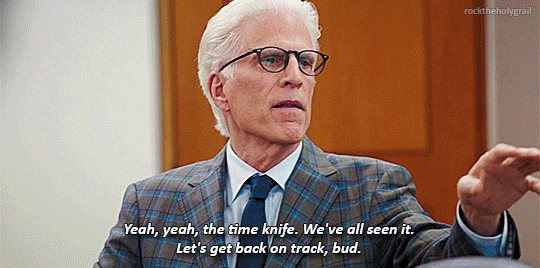
“Please await me. Terrible misfortune. Right wing three-quarter missing; indispensable to-morrow.
— Overton.”
I mean if you're missing three quarters of your right wing, that does sound like a terrible misfortune, but I am interested in how a bird managed to send a telegram. Perhaps it is the trained cormorant! Or one of the canaries.
Despite being British and my brother having played it at school (and numerous other things about my life which mean I should know), the rules and terminology of rugby are completely beyond me. It is a massive gap in my knowledge that I have no real desire to fill in. I know William Webb Ellis and that there's League and Union, something something scrum, score a try, six nations. There. That's all I know.
But according to the post script in the last email, this is about Rugby, so I must assume that Right Wing three quarter refers to a playing position and that tomorrow there is a rugby game.
For years I had gradually weaned him from that drug mania which had threatened once to check his remarkable career. Now I knew that under ordinary conditions he no longer craved for this artificial stimulus, but I was well aware that the fiend was not dead, but sleeping; and I have known that the sleep was a light one and the waking near when in periods of idleness I have seen the drawn look upon Holmes's ascetic face, and the brooding of his deep-set and inscrutable eyes.
This is honestly a really interesting and serious discussion of drug addiction. We've had a few comments from Watson about it before, but never to this extent, I don't think. And the actual discussion of how he's been slowly getting Sherlock clean over the years. But the acknowledgement that it's always there, waiting. And it's always preying on Watson's mind, too.
Mr. Cyril Overton, of Trinity College, Cambridge
Of course he's from a Cambridge college and worrying about a rugby game. The only way this could be more Oxbridge is if it were the boat race he was worrying about.
Do you think it's an Oxbridge match or an intercollegiate one?
“I've been down to Scotland Yard, Mr. Holmes. I saw Inspector Stanley Hopkins. He advised me to come to you. He said the case, so far as he could see, was more in your line than in that of the regular police.”
Glad to see the police really care about missing people. Although 'university rugby player wandered off' isn't really that unusual in my experience. After a rugby social night you'd trip over them in the weirdest places. After the medical students, they probably had the most intense events.
"Whether it's passing, or tackling, or dribbling, there's no one to touch him..."
Do you dribble in rugby? I genuinely thought that was a football term.
(According to the All Blacks apparently you do... weird. I do not understand this game at all)
"Why, Morton or Johnson, the Oxford fliers, could romp round him."
Ah, it's an Oxbridge match. No wonder he's so put out about it.
“There is Arthur H. Staunton, the rising young forger,” said he, “and there was Henry Staunton, whom I helped to hang, but Godfrey Staunton is a new name to me.”
Just let me look in my book of people. Oh yes, he's not the one I had hanged... nope, don't know him. This is so funny to me.
“I suppose, then, if you have never heard of Godfrey Staunton you don't know Cyril Overton either?”

His utter astonishment at Holmes not knowing about rugby is sweet and also hilarious. Also kind of arrogant, but I was expecting that.
...with many repetitions and obscurities which I may omit from his narrative, he laid his strange story before us.
Thank you, Watson.

"Half an hour later the porter tells me that a rough-looking man with a beard called with a note for Godfrey. [...] Godfrey read it and fell back in a chair as if he had been pole-axed. [...] Then he went downstairs, said a few words to the man who was waiting in the hall, and the two of them went off together. The last that the porter saw of them, they were almost running down the street in the direction of the Strand."
Oooh... long lost relative? But what's in the letter? Does Godfrey have a secret past? Is the bearded man a colonel? Has he trained some birds to do crimes? But if he had trained birds to do crimes, surely he could also train them to deliver messages without needing porters.
Even with Watson editing this down, the tone, pace and wording still convey Cyril's personality perfectly. Excellent character work. Chef's kiss.
“I wired to Lord Mount-James.”
“Why to Lord Mount-James?”
“Godfrey is an orphan, and Lord Mount-James is his nearest relative—his uncle, I believe.”
Ding-ding, we have some more evidence for long lost relative. Maybe crawling out of the woodwork to get money? If Godfrey is related to a Lord, that would make sense.
"Lord Mount-James is one of the richest men in England.”
Yep, there is definitely going to be at least an indication that money is involved. Although it may turn out to be one of those stories where that is a red herring.
“Yes, he was his heir, and the old boy is nearly eighty—cram full of gout, too. They say he could chalk his billiard-cue with his knuckles. He never allowed Godfrey a shilling in his life, for he is an absolute miser, but it will all come to him right enough.”
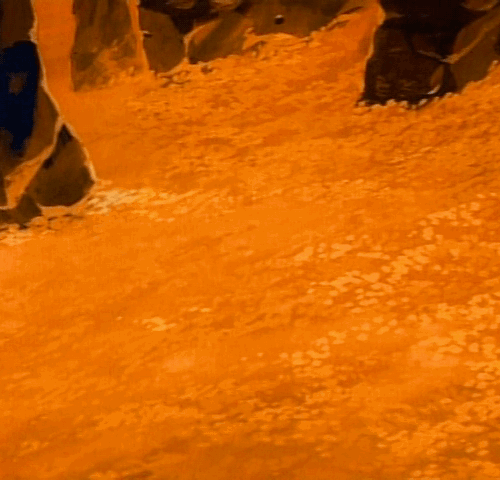
They are really building up the money motive. Makes me think it won't be that straightforward.
He was simply what the porter described as a “medium-looking chap”
Watson, king of describing people, faced with an ordinary person. You can feel the exasperation.
“It is a pity he did not write in pencil,” said he, throwing them down again with a shrug of disappointment. “As you have no doubt frequently observed, Watson, the impression usually goes through—a fact which has dissolved many a happy marriage. However, I can find no trace here. I rejoice, however, to perceive that he wrote with a broad-pointed quill pen, and I can hardly doubt that we will find some impression upon this blotting-pad."
Proper old school detective work going on. Blotting paper. Does anyone in the world still use blotting paper, I wonder. I spent my childhood reading Enid Blyton and Agatha Christie and wondering what it even was.
"But I dare say it may have come to your notice that if you walk into a post-office and demand to see the counterfoil of another man's message there may be some disinclination on the part of the officials to oblige you. There is so much red tape in these matters! However, I have no doubt that with a little delicacy and finesse the end may be attained."
How dare they protect people's privacy in that way! How dare!
Honestly, I find this kind of reassuring. I may have assumed that there was no security about these things at all in the Victorian era. Weird when you find something that they did better back then. By 'delicacy and finesse' does he mean 'bribery'? So... maybe not any better really.
...we looked up to find a queer little old man, jerking and twitching in the doorway. He was dressed in rusty black, with a very broad brimmed top-hat and a loose white necktie—the whole effect being that of a very rustic parson or of an undertaker's mute. Yet, in spite of his shabby and even absurd appearance, his voice had a sharp crackle, and his manner a quick intensity which commanded attention.
See, Mr Day-porter, this is how you describe a person.
"If he has any expectations it is due to the fact that I have never wasted money, and I do not propose to begin to do so now. As to those papers with which you are making so free, I may tell you that in case there should be anything of any value among them you will be held strictly to account for what you do with them.”
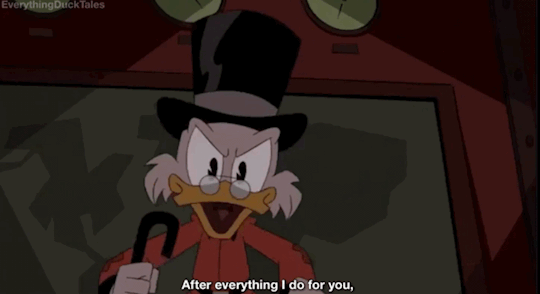
Huge Scrooge McDuck vibes from this guy.
“Heavens, sir, what an idea! I never thought of such villainy! What inhuman rogues there are in the world! But Godfrey is a fine lad—a staunch lad. Nothing would induce him to give his old uncle away."
Dude, hate to say it, but if you were my uncle I would absolutely give you away. In a heartbeat. I would be telling them every piece of information I knew about you so fast they'd have burgled your house before you could blink. Unless they showed me their faces, then I'd use the information as leverage to get away.
But you seem like such a great guy, I'm sure Godfrey wants to protect you with his life.
Totally.
"You must admit that it is curious and suggestive that this incident should occur on the eve of this important match, and should involve the only man whose presence seems essential to the success of the side."
I mean, if he hadn't gone off on his own accord, I'd definitely support the argument 'Oxford kidnapped him'. Makes perfect sense.
OH... Holmes meant people who had bet on the game.
My best bet currently is that he got news (real or false) about someone he cares about and left to try to help them. That would also explain the 'us'.
25 notes
·
View notes
Text


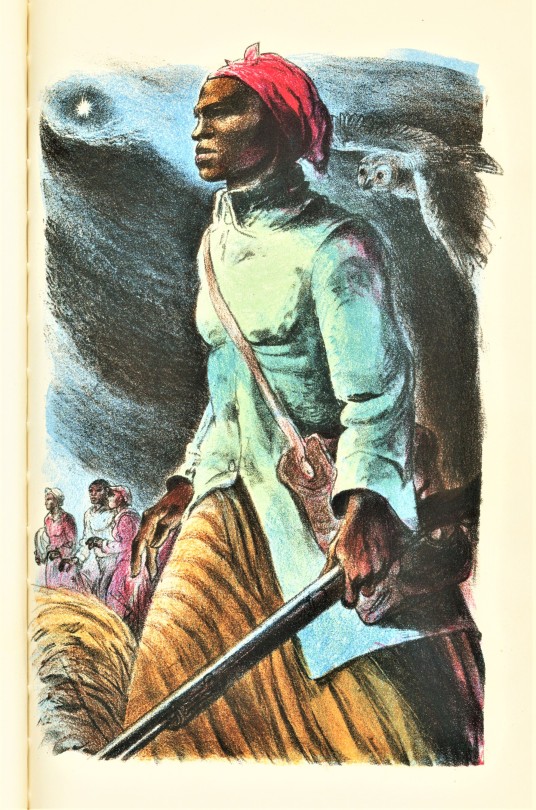

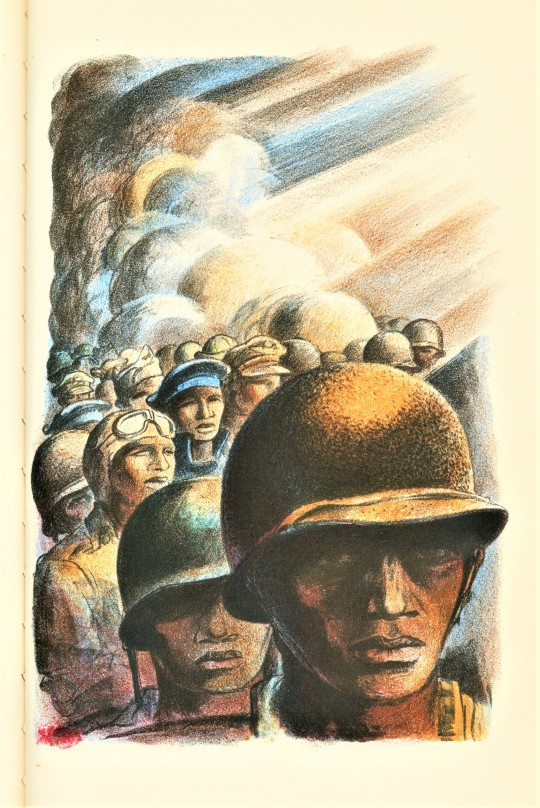
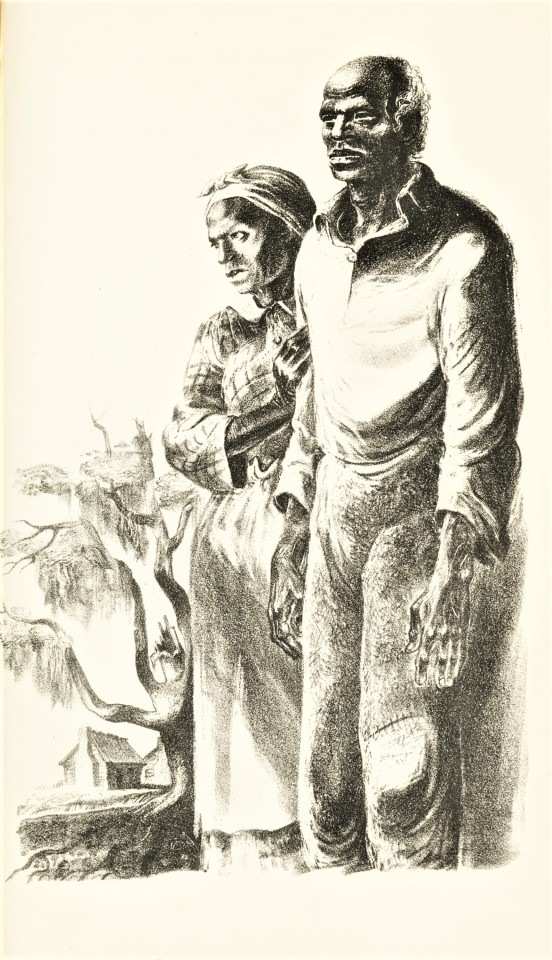
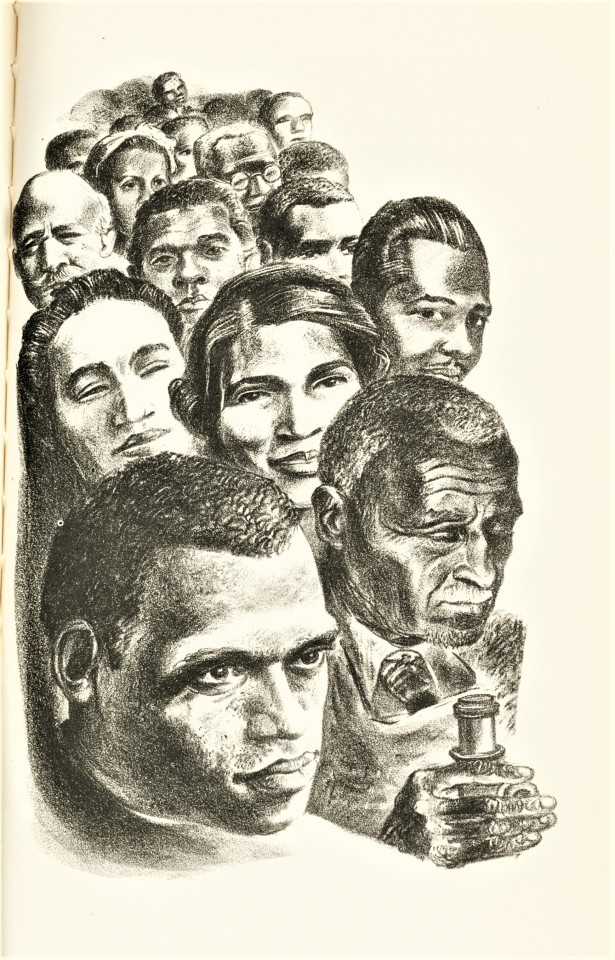

Juneteenth 2023
For Juneteenth this year, we present a few of the lithographic illustrations by American artist and illustrator Lynd Ward (1905-1985) for North Star Shining by American children's book author Hildegarde Hoyt Swift (1890-1977), published in New York by William Morrow & Co. in 1947 with lithographs printed by master printer George C. Miller (1894-1965).
The book, written entirely in verse for children, is intended as "a pictorial history of the American Negro," but although well-intentioned from a 1940s white point of view, unfortunately its white perspective often misses the mark in a cringe-worthy way. Nevertheless, we do find Ward's illustrations inspirational and reflect one of the finer points of the text:
Our name is legion;
There are thirteen million of us now.
We are a potent force in America.
We are America.
The book is dedicated to Captain Clarence W. Griggs, chaplain of the 594th Port Battalion, killed in action at Okinawa April 12, 1945.
View posts from Juneteenths past.
#Juneteenth#holidays#African Americans#Black Americans#emancipation#North Star Shining#Lynd Ward#Hildegarde Hoyt Swift#William Morrow & Co.#George C. Miller#lithographs
41 notes
·
View notes
Text
American Gods novel study under the cut :3
yes, i handed this in for a grade.
five pages of chaos. enjoy!
American Gods – Neil Gaiman
Published by William Morrow (New York, 2001)
Awards: Hugo Award for best novel (2002), Locus Award for best fantasy novel (2002), Nebula Award for best novel (2003), Bram Stoker Award for best novel (2001)
Genres: Fantasy/Horror
Protagonist: Shadow Moon
Aliases: Puppy (by Laura), Mike Ainsel (false name while he lived in Lakeside), Baldur (confirmed in a later novella)
Family: Unnamed Mother, Mr. Wednesday (father), Laura McCabe (wife, deceased, (temporarily reanimated))
Age: 32 (beginning of novel)
Status: Reincarnated (it’s a long story)
Shadow is a tall, imposing black man (he’s a lovely man, don’t let appearances fool you.) who was recently released from prison after his wife’s death. His plan is to return home, where his old job as a personal fitness trainer is waiting for him, but his entire life is thrown into a blender when he meets Mr. Wednesday. All Shadow wants is some semblance of normality, of what his life was like before prison, but alas.
Antagonist 1: The New Gods/The Opposing Side (person vs society, person vs supernatural, person vs technology – the new gods are really confusing.)
The new gods want to eliminate the old gods because they’re afraid of being forgotten, so, by extension, they want to eliminate Shadow, who is working with the old gods.
Old gods will always exist at least a little bit, even as a wisp of energy, because they can’t be forgotten. They’re remembered through stories and tales and carvings and art and everything. They’ll always be around. The new gods, on the other hand, will eventually disappear. They’re created through the ideology that anything you worship or dedicate time to can be turned into a god. If you spend a few minutes making sure your car is in tip-top shape every day, you’re worshipping it. If you do it enough, your car could be the personification of a god. If you spend a little bit too long watching TV, yep, you guessed it. TV is now a god! (Well, her name is Media, but you get the idea.) It’s the same with drugs, with money, with everything.
Antagonist 2: Mr. Wednesday (person vs person, person vs supernatural)
Aliases: Odin, Wednesday, Grimnir/Grimm, Uncle Emmerson Borson (by Shadow when he lived in Lakeside)
Family: Shadow Moon (Son), hundreds of unnamed children (just like Zeus, Mr. Wednesday is a big ol’ whore – your words, not mine.)
Age: It’s complicated.
Status: He has multiple forms but is alive as long as he is remembered at least a little bit. He misses the blood sacrifices, though.
In the beginning of the story, Shadow is wary of Wednesday, but quickly becomes acclimated to him. As the story goes on, Shadow gets closer to Wednesday, even assisting him in various crimes, and mourning his death (spoiler alert!). When Shadow first agreed to work for Wednesday, he was told that in the case of Wednesday dying, Shadow would have to take his vigil. When Wednesday does die, Shadow volunteers to take the vigil, and is tied to the World Tree for nine days and nine nights without food or water.
Antagonist 3: Shadow (person vs self)
Throughout the book, Shadow argues with himself over many things. Whether or not to work for Wednesday, whether or not to rob the bank, whether or not to trust his wife’s reincarnated rotting body’s advice after she cheated on him (it wasn’t her fault, the old gods coerced her into it.), whether or not to take Wednesday’s vigil. It goes on, and on, and on. He always chooses the more stupid and dangerous option, obviously, but it’s always a fight.
Plot Summary
Shadow is released from prison on parole after his wife, Laura, is pronounced dead after a car crash. Shadow is planning to take a plane back to his hometown, but in the seat next to him is a man that gives him the creeps. Shadow doesn’t get back on the plane after they touch down to do a transfer, and instead goes to a bar, where the man from before, Wednesday, is waiting. Wednesday offers Shadow a position as his assistant, and, after some convincing and mead, Shadow agrees. (Trigger event) Wednesday convinces Shadow to partake in various crimes as the war with the new gods approaches, and Shadow willingly follows him. At one point, Shadow lives in a quaint town called Lakeside, and during his residence, a girl goes missing. After a few months, Shadow is arrested for breaking parole and travelling across the USA with Wednesday. Mr. Ibis and Mr. Jacquel come to collect him, and they reveal that Wednesday has been killed by the new gods, and Shadow is to accompany them to collect him body. They collect it, and Shadow volunteers to take Wednesday’s vigil. He dies upon the life tree but is revived soon after by Whiskey Jack (Wisakedjak). Shadow ventures to House on The Rock, where the war is to take place, and finds Laura, who has just stabbed Loki. It’s reavealed that Loki was behind the war, and the war was never supposed to be a war, it was going to be a blood sacrifice to Loki and Wednesday (Odin). (Crisis) Shadow gives a speech to the gods, new and old, and they decide not to fight. Shadow returns to Lakeside, where he realizes the missing girl is in the trunk of an old truck out on the ice, which is a yearly tradition – every year they drive an old klunker out onto the ice and place bets on when it’s going to melt. Shadow opens the trunk and finds the girl, who is long dead, but the ice begins to crack and he goes under. He’s rescued by Hinzelmann, the man who drives the truck out every year. Hinzelmann warms Shadow up and reveals that he is the reincarnation of a dead child god, and every year he kills a child as a sacrafice to himself. (Climax) A young policeman hears the conversation, and shoots Hinzelmann in self defense, but is afraid of repurcussions, so he burns down the house to destroy evidence. He helps Shadow escape Lakeside unnoticed, and Shadow moves to Europe, and meets the old version of Wednesday, and returns his glass eye to him. (Resolution)
Theme – It’s a bit confusing, but bear with me.
The choices we make affect the things that happen to us/in the world around us.
When the gods coerce Laura into cheating on Shadow, they guarantee Shadow meeting Wednesday.
When Shadow drops a coin into Laura’s grave, and Laura is reincarnated as a dead body, Shadow guarantees Mad Sweeney’s suicide.
When Shadow chooses to risk playing checkers against Czernobog, Czernobog agrees to fight on his side in the war.
Response Entries
Shadow’s growth throughout American Gods
In the beginning, Shadow is a kind but stubborn man, and is rigid in his beliefs. He isn’t likely to bend to someone’s will unless he’s pressed or if it’s of some benefit to him. As the novel progresses, he becomes more flexible, and more of his own person. He doesn’t believe that Wednesday is Odin in the beginning, and he thinks that there’s absolutely no way that his dead wife is sitting in his dingy hotel room. But when you look in the last few parts, as he meets new old gods (old gods who are new to him, not the new gods.), he asks questions. He asks where they’re from, he wonders about their mythological origins, he questions how they came to be in America, of all the places in the world.
In the beginning, he does Wednesday’s bidding, albeit reluctantly. As he becomes closer with Wednesday, he grows as a person, and does what he says without questioning. (well, maybe a few questions.)
Sam’s Flowers: Neil Gaiman’s Writing Style
“Then he ran after her, and put the flowers into Sam’s hands. He hurried away, so she could not give them back. Then he walked up the hill back to his car and he took Highway 90 south to Chicago. He drove at slightly under the speed limit. It was the last thing he had to do. He was in no hurry.”
In this scene, Shadow is delivering flowers to Sam as a thank you, and as a final goodbye. When the police came to take Shadow away for breaking parole, Sam came to his defense. Maybe she felt that she owed it to him, because he picked her up once when she was hitchhiking, and got her home safe, or maybe she really did want to save him. Either way, Shadow’s flowers were a nice gesture. I think Neil Gaiman wanted the reader to feel a sense of finality, and of closure. I’ll be honest, I thought this scene was sad. Shadow gives her the flowers, and she doesn’t even see him, or have time to say thank you. To her and her girlfriend, the flowers just appeared. I think Sam knew, at least deep down, who gave them to her, and that’s what makes the scene feel so sad to me. It’s a final goodbye. If I’m right about what Neil Gaiman was trying to do, then he was definitely successful, because I felt oddly moved by that paragraph.
Personal Reflection
American Gods is easily one of the best books I’ve read this year. I really only picked it out because I recognized Neil Gaiman’s name from Good Omens, Coraline, and The Graveyard Book, but I don’t regret it. His writing style is beautiful and interesting, the book is full of incredible information, and the characters are beautifully written, flawed, and so incredibly human. It was an incredibly dense book, filled with plot twists and sharp changes in every direction, but I loved every minute of it.
The entire book felt like a rollercoaster. There are scenes that have hardly anything to contribute to the plot, but are full of emotion and amazing concepts, such as the scene with Salim and the Jinn. I say it doesn’t contribute anything, but it shows how starved the gods are, and how much they’re willing to do to leave America, or at least be worshipped again. Scenes with Bilquis the Hooker, for example, show the desire gods have to be seen, but they also show how easy it is for them to be killed off once they’re forgotten. There are scenes that have nothing to do with the gods that still make you feel inexplicably moved, like when Shadow delivers Sam the flowers, or even when he’s just sitting in his hotel room talking to Laura.
American Gods is bursting at the seams with information and trivia about the different mythologies. It begins with only Norse mythology, and then BAM. Egyptian, Middle Eastern, African, and Greek characters are in it. Jesus is even mentioned at one point. You get the opportunity to learn about so many different incarnations of gods, and Neil even throws his own twist on the characters, and the ways they’ve come to be in North America as opposed to their home countries.
The way Neil Gaiman writes his characters is amazing. I could go on and on about the characterization of Shadow, or Wednesday, or even Sam, but I’ll discuss one of the more unsung heroes. Laura. In the beginning, Laura is just the woman who Shadow went to prison for, the woman who cheated on him. But once she’s revived, she’s so much more than that. She’s incredibly loyal to Shadow, and was only coerced into cheating on him by the old gods to guarantee Shadow becoming Wednesday’s right hand man. Shadow revives her, when all she really wants is her final, eternal rest. She follows him across America, never wavering. She’s rotting, and slowly falling to pieces, but she helps him. She genuinely feels deep remorse for what she’s done, and yes, she’s cold, and dead, and repulsing, but that’s what makes her so uniquely Laura. All of Neil’s characters are like this. They have genuine personalities, and make you feel things.
Part of the reason the old gods want a sacrifice is because they’re being forgotten, and they don’t know how else to reinforce their memories. Well, Neil Gaiman ensures they’ll be remembered forever through American Gods, which I’m not likely to forget any time soon.
@nico-the-overlord
7 notes
·
View notes
Text
My Favorite Cover Designs
I just posted about how I love cheap paperback book printings that aren't first and foremost concerned with aesthetic value, and that the recent drive of "books as aesthetic decoration" is wack,
BUT
that doesn't mean you can't love a good lookin book! The aesthetics of a book's cover should be admired, even if that isn't the book's main purpose. So here's a thread of my favorite book covers:

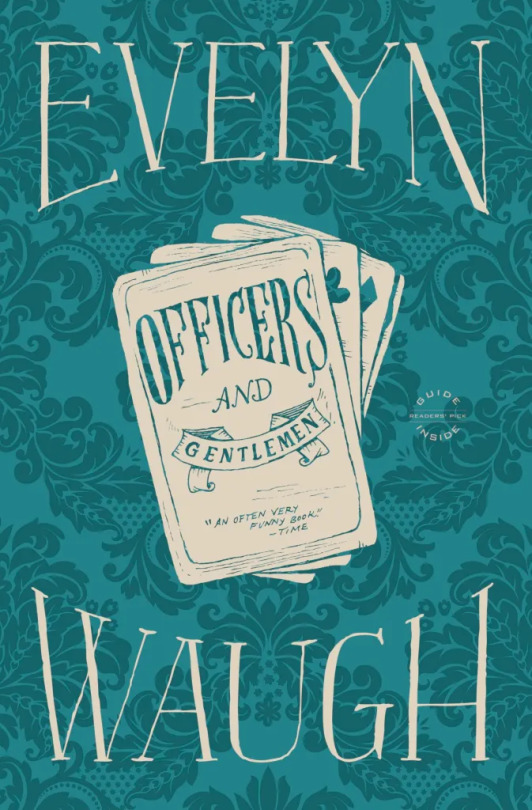

This cover series of Evelyn Waugh's work by Back Bay Books. (Not all books pictured.) Haven't read too much Waugh, but these covers are beautiful and get at the hearts of Waugh's stories: satirizing the high-class culture of England.


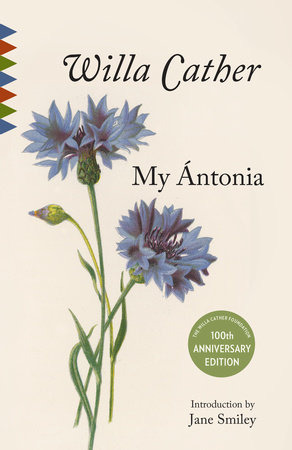

Pengunin Random House's Vintage Classics Collection. They don't all have this cover motif, but a lot of them do, and it's charming. A good chunk of them have the plant/flower design motif, but not all of them do, and I love them all regardless. The colored triangles on the side is an attractive way to show that it's a cover series, and the covers (at least the ones I've run into) are matte, which I love!
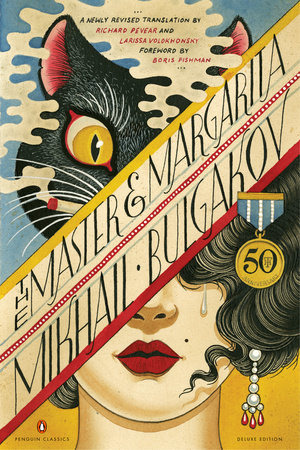
Penguin Random House's The Master and Margarita
Just the best book cover I've ever seen. And one of the best books I've ever read.


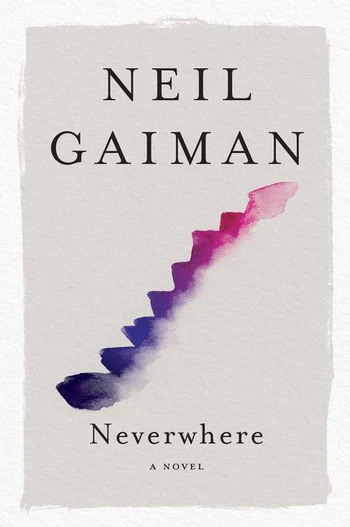
Not a huge Gaiman fan personally (his stuff is great, just not for me), but damn do these books from William Morrow Paperbacks hit.

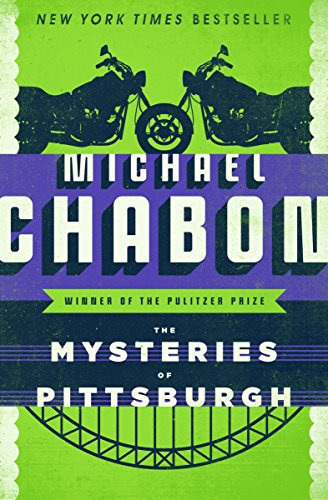

Not a big Chabon fan either--just not for me--but this series gives his books an undeniable character. Couldn't find the publisher to credit.
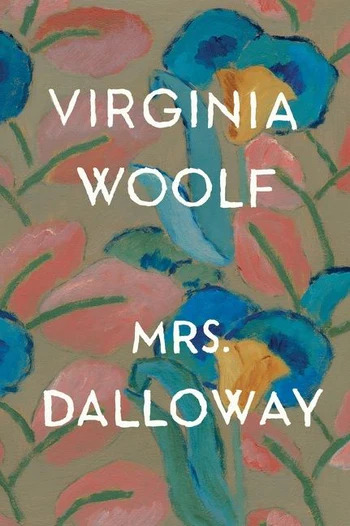
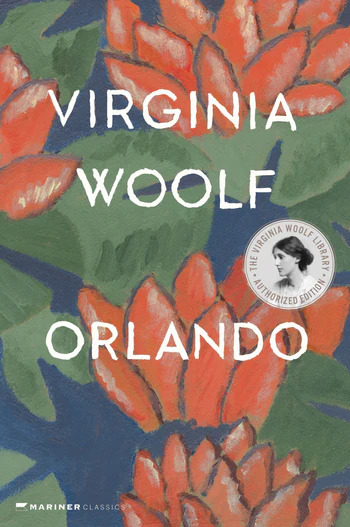

Mariner Books's series of Virginia Woolf's most popular novels has been my favorite cover series for a long time. It really feels like Woolf's prose in a way I can't put into words because I don't know artistic lingo, but it's there.


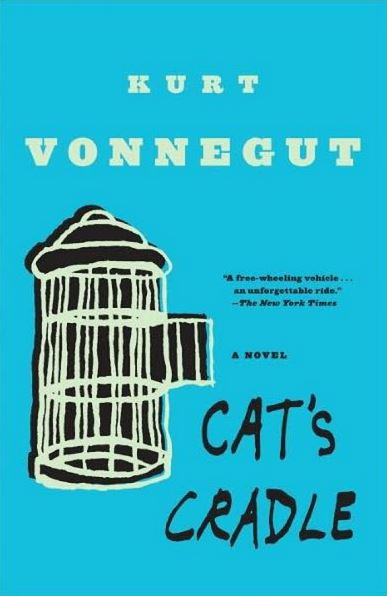
Dell Publishing's series of I believe all of Kurt Vonnegut's work gets at the witty, comic nature of Vonnegut's novels and are instantly recognizable by color.
5 notes
·
View notes
Text
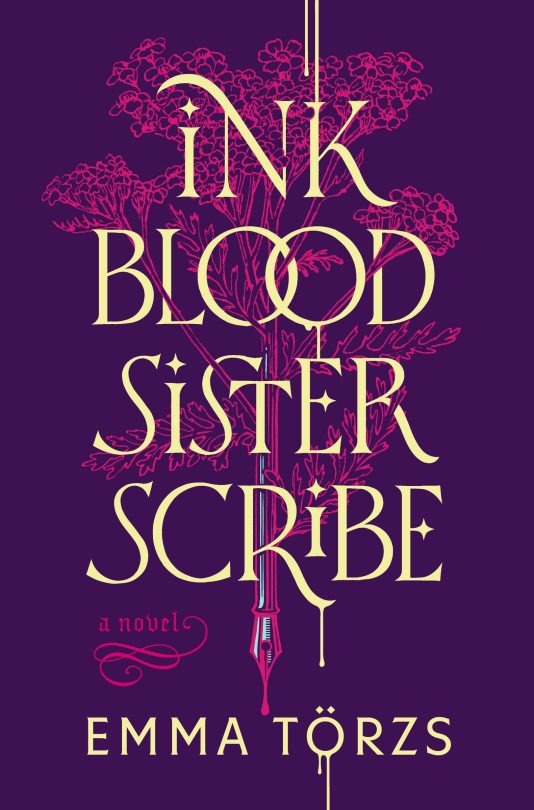
Title: Ink Blood Sister Scribe | Author: Emma Törzs | Publisher: William Morrow (2023)
2 notes
·
View notes
Text
January 2024 Diverse Reads
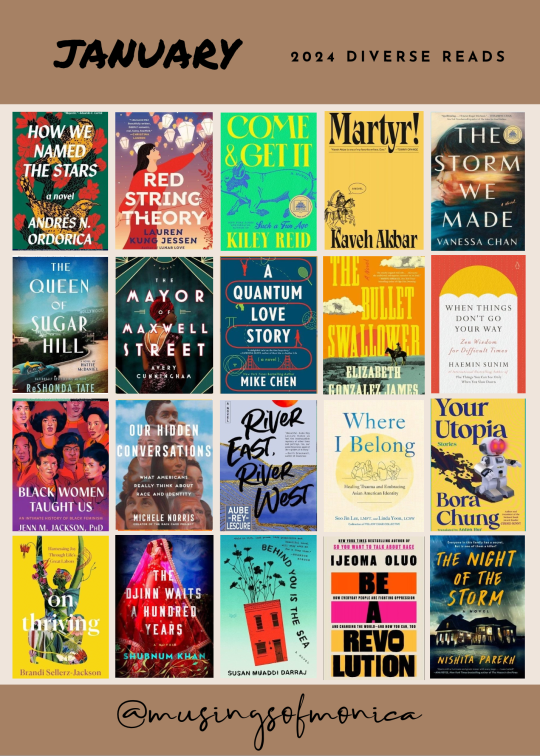
January 2024 Diverse Reads:
•”How We Named the Stars” by Andrés N. Ordorica, January 30, Tin House Books, Literary/LGBT/Hispanic & Latino/Coming of Age
•”Red String Theory” by Lauren Kung Jessen, January 09, Forever, Romance/Romantic Comedy/Asian American
•”Come and Get It” by Kiley Reid, January 30, G.P. Putnam's Sons, Literary/Coming of Age/Women
•”Martyr!” by Kaveh Akbar, January 23, Knopf Publishing Group, Literary/Family Life/LGBT
•”The Storm We Made” by Vanessa Chan, January 02, S&S/Marysue Rucci Books, Literary, World Literature/Asia/Historical /20th Century/Post-World War II/Women
•”The Mayor of Maxwell Street” by Avery Cunningham, January 30, Hyperion Avenue, Romance/Historical/African American/Women
•”The Queen of Sugar Hill: A Novel of Hattie McDaniel” by Reshonda Tate, January 30, William Morrow & Company, Biographical/Historical/African American/Women/Own Voices/World Literature/American/20th Century/Post-World War II
•”A Quantum Love Story” by Mike Chen, Mira Books, January 30, Romance/Time Travel/Science Fiction/Time Travel/Family Life/Siblings
•”The Bullet Swallower” by Elizabeth Gonzalez, January 23, Simon & Schuster, Literary/Hispanic & Latino/Magical Realism
•”When Things Don't Go Your Way: Zen Wisdom for Difficult Times” by Haemin Sunim & Charles La Shure (Translator), January 23, Penguin Life, Buddhist/Mindfulness & Meditation/Philosophy/Personal Growth/Buddhism
•”Black Women Taught Us: An Intimate History of Black Feminism” by Jenn M. Jackson, January 23, Random House, Women/American Government/Feminism & Feminist Theory/Women's Studies
•Our Hidden Conversations: What Americans Really Think about Race and Identity” by
Michele Norris, January 16, Simon & Schuster, Ethnic Studies/Discrimination & Race Relations/Social Classes & Economic Disparity/Cultural & Social
•”River East, River West” by Aube Rey Lescure, January 09, William Morrow & Company, Literary/Coming of Age/Family Life/Asian American/Cultural Heritage/World Literature-China/21st Century
•”Where I Belong: Healing Trauma and Embracing Asian American Identity” by Soo Jin Lee & Linda Yoon, January 09, Tarcherperigee, Ethnic Studies/ Asian American Studies/Mental Health/Personal Growth
•”Your Utopia: Stories” by Bora Chung & Anton Hur, January 30, Algonquin Books, Horror/Science Fiction/Short Stories/World Literature/Korea
•”On Thriving: Harnessing Joy Through Life's Great Labors” by Brandi Sellerz-Jackson, January 09, Ballantine Books, Personal Memoirs/Inspiration & Personal Growth
•”The Djinn Waits a Hundred Years” by Shubnum Khan, January 09, Viking, Historical/Gothic/Women
•”Behind You Is the Sea” by Susan Muaddi Darraj, January 16, Harpervia, Literary/Short Stories/Humor/Coming of Age/Women/Family Life/Cultural Heritage/Feminist/Muslim/Own Voices/World Literature/Middle East/Arabian Peninsula
•”Be a Revolution: How Everyday People Are Fighting Oppression and Changing the World--And How You Can, Ijeoma Oluo, January 30, HarperOne, Activism & Social Justice/Ethnic Studies/Personal Growth/Anthropology/Cultural & Social/Race & Ethnic Relations/Civil Rights/Social Activists/United States/21st Century/Human Rights/Motivational & Inspirational
.”The Night of the Storm” by Nishita Parekh, January 16, Dutton, Thriller/Mystery & Detective/Family Life/Asian American
#books#bookish#bookworm#bibliophile#book lover#reading#bookaddict#book#booklr#bookaholic#reading list#to read#reading resolutions#reading recommendations#bookblr#books and reading#reader#diverse books#diverse reads
2 notes
·
View notes
Text
Books of the month: Jan 2023
Probably should hurry up and write a January wrap-up! As always, here's a few books that aren't necessarily my personal favorites from the month, but that I would recommend:
Unfortunately it looks like the first book I was going to include is was published by William Morrow, which is a Harper Collins imprint. Shame, because I really liked this one! But withholding any reviews etc. of Harper Collins titles is literally the least I can do to support the ongoing strike.
Summer Sons (Lee Mandelo): I wrote more about this here; I will just repeat that the setting and magical realism were neat, and the main character's journey around grief and self-acceptance were even neater.
Light Thickens (Ngaio Marsh): This is the very last one of Marsh's Roderick Alleyn mysteries. Considering that she generally set her mysteries in a hand-wavy "contemporary" time, and that this one was published almost 50 years after the first Alleyn mystery, Alleyn should probably technically be in his seventies and slowing down, but he is not. Marsh draws on her own theater experience to again create a realistic and amusing cast of actors and theater personnel. It's not my favorite of all of her mysteries, mainly because most of them are very good, and I wouldn't necessarily recommend starting here, but it is quite a good mystery, and it can stand alone fine.
10 notes
·
View notes
Text
The Marvelous Land of Oz, the Strange (Transgender?) Sequel to The Wonderful Wizard of Oz
Over on my website, I made a post about the sequel to The Wonderful Wizard of Oz. What follows is the beginning of it, as a kind of preview.
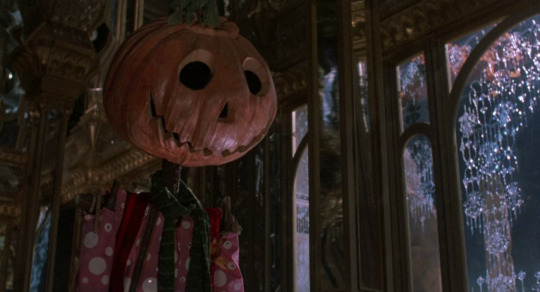
While it was not the first, the 1939 movie The Wizard of Oz has proven the most enduring and popular adaptation of L. Frank Baum’s original novel. The Wonderful Wizard of Oz was published thirty-nine years prior to the release of that film. To be frank (pun intended), I find the movie boring. I assume it is popular because it was a special effects extravaganza for 1939. Baum’s novel, in contrast, is an inspiration to me for its incorporation of lush and extensive artwork by W. W. Denslow with the text. My copy of The Wonderful Wizard of Oz sits proudly on my shelves of classic literature.
I am not writing about The Wonderful Wizard of Oz today, however. It only recently occurred to me that I should read a few of the other books in the series. Baum himself wrote at least fifteen Oz books in total. He seems to have been hesitant to pursue the endeavor. But money is a powerful motivator. When the second Oz novel, The Marvelous Land of Oz, proved another hit, Baum, like a certain man named Arthur Conan Doyle who continued his Sherlock Holmes stories despite being averse to doing so, committed to writing more bizarre modern fairy tales set in this magical world.
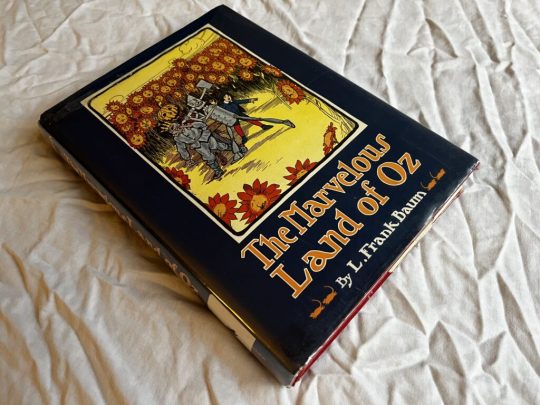
My copy of The Marvelous Land of Oz is the William Morrow & Company 1985 reprinting of the 1904 original, a high-quality hardcover book that faithfully reproduces the large text and the illustrations that flavor almost every other page. The color drawings feature their own glossy pages, which disrupts the aesthetic of the book as a physical object but ensures the highest possible quality for the drawings themselves. Most of the illustrations are line drawings without color.
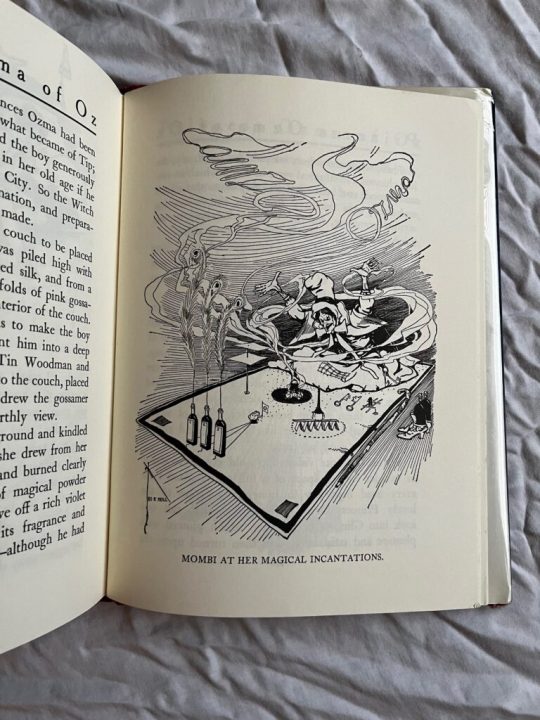
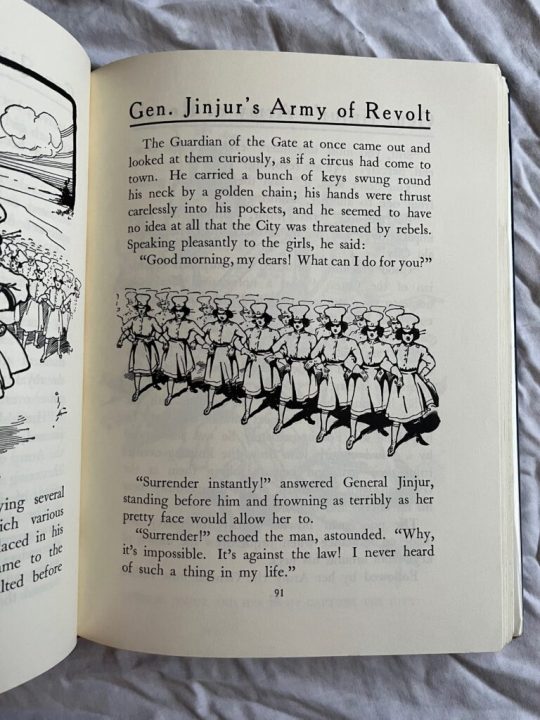
The later Oz books brought back Dorothy by popular demand (according to Baum). However, The Marvelous Land of Oz keeps the action in the titular magical region, or “fairy country” as Dorothy calls it in the sequel, no isekai involved. The protagonist is a young boy named Tip who lives in the country of the Gillikin people with a mean old sorceress—not a witch, for bureaucratic reasons—named Mombi. The story begins with Mombi out buying a life-bestowing powder from a shady wizard. A series of events leads to Tip running away from home with a terrifying but friendly living mannequin named Jack Pumpkinhead and a similarly living Saw-Horse that can gallop at rapid speeds. Tip and his friends become entangled with political intrigue after General Jinjur and the Army of Revolt overthrow the Scarecrow and seize the Emerald City, later bringing Mombi aboard as a royal advisor. Along the way, like Dorothy, Tip becomes a member of a bizarre group of travelers. The Scarecrow and the Tin Woodman (real name Nick Chopper) are well known from Dorothy’s adventures, both in the universe of the fiction and in the world you and I inhabit. But the aforementioned Pumpkinhead, the pun-slinging Woggle-Bug, and the wobbly but indefatigable Saw-Horse also join Tip on his journey. The Pumpkinhead’s presence is also my justification for posting this on Halloween. (I posted this on Halloween.)
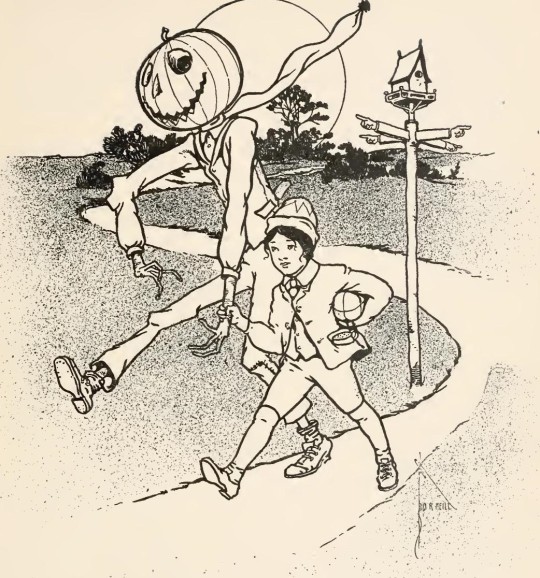
Again, please read the rest over at my website.
13 notes
·
View notes
Text
Rinse and Repeat-Finding Feelings Not Freedom
Hi Skippy & Friends-Pilgrim here wishing a lovely Sunday to all. In our never ending efforts to understand the driven Harkles and group, I looked up Dey Street Books wondering why they would want to invest in deep drivel with Finding Freedom take 2? Here is a quick peek at their business profile.
1. Formerly It Books with a reputation for celebrity memoirs, it is part of William Morrow Group at HarperCollins which is located on the corner of Broadway and Dey Street, NYC.
2. The refreshed imprint will publish fiction and nonfiction "through innovative marketing and publicity efforts"...Hmmm what does this mean?
3. Books include Live Wire by Kelly Ripa; Pairs Hilton by Paris; Pamela Anderson titled Love, Pamela; and this one-Percersion of Justice, The Jeffrey Epstein Story; Little Sister by Lana Wood-about Natalie's death, defines their inventory.
4. Carrie Thornton was mentioned as heading up this project. She is the VP/Editorial Director and worked on the "international blockbuster Finding Freedom by royal reporters Omid Scobie & Carolyn Durand" who specilizes in "non-fiction publishing with a focus on personality driven titles in the areas of memoir, lifestyle, humor and music." I would guess more like fictional feelings, and subjective statements filling the pages VS non-fiction facts by honest authors.
PS...HarperCollins is owned by News Corp which is Rupert Murdoch's media conglomerate.
Over and out from a steamy Cape Cod...Long live the queen!
Thank you so much Pilgrim……what a very informative post!🙂❤️
17 notes
·
View notes
Text
Title: Yellowface
Author: R.F. Kuang
Publication Year: 2023
Publisher: William Morrow
Genre: fiction
I’ve been a fan of Kuang’s writings for years now, and I hate to say this, but Yellowface was a disappointment. I see the commentary that she wanted to make about the writing and publishing industry, and I also see the satirical elements of it all— I just don’t think it was executed very well. The book felt a bit directionless in the sense that it read more as a need for Kuang to share her grievances and frustrations somewhere without much interrogation in the process. In essence, nuance got lost in favor of turning a shit show into a spectacle to ogle at.
I was also surprised to find out that Kuang has stated in interviews that Athena Liu was not supposed to be a representation of her. If that is the case, I’m struggling to understand why she made the decisions she did to have that many overlaps between Athena and herself (I should mention not in personality, but in their writing career/interests). For those who are familiar with Kuang’s oeuvre, it’s hard not to read Athena as a caricature of herself. I think this is why it was difficult for me to read Yellowface as a nuanced critique, because it seemed like there was personal beef.
It was hard not to put this book down though. If you’re a fan of characters who are disasters and/or messy dramas (shout out to the Online Discourses™), this book will keep you reading. It was interesting to read such a different writing style from Kuang, though, with all the characters having a little (or, for most of them, a lot) more bite to them. I’d be curious to know if she’ll write in this style again in the future or not, or if she’ll return to her fantasy(ish) roots.
Content Warning: death, racism, cultural appropriation, rape, some suicidal thoughts
2 notes
·
View notes